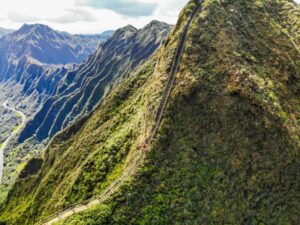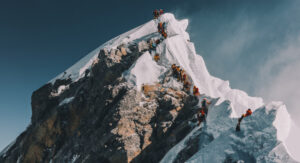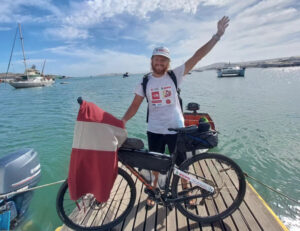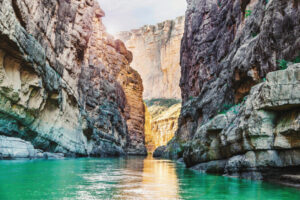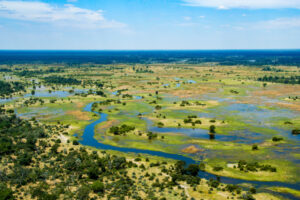Mountains can be dreadfully unforgiving. One needs to pay constant attention even when moving on well-known terrain…
Mont Blanc, for instance, which may be considered the beaten track for the professional mountain guide, is often called the ‘White Killer’ seeing as it causes deaths every year.
Every professional mountain guide has own basic rules; vital truths discovered through hard practice in the field. Some may consider these truths as valuable as some skills taught at mountain guide schools.
Mountain Planet has conducted interviews with 10 mountain leaders registered on mountainplanet.com to identify 10 major Dos and Don’ts in the profession.
We combined all the answers and pulled out ten vitally important truths which might be interesting for both mountain guide professionals and those who are making first steps in becoming mountain guides.
Yes, we expect something like “Hey, I know all of it!” but let’s go over it together just to check how well we remember it.
1. Stay safe
Be cautious and escape traumas in every possible way. Clients’ safety depends on the mountain guide’s ability to perform his/her job at the highest professional level. Even microtraumas can create unnecessary risks. For this reason, mountain guides need to invest in first class gear, make sure they have extra supplies (e.g. having extra supplies of bottled oxygen is very crucial when summiting Mount Everest with clients), be physically fit and go through medical examination on a regular basis.
2. Feedback promotes growth
Talk to the client after the adventure. Mountain guides need feedback from clients to help identify strengths and weaknesses. Make it a rule. Sometimes criticism is the best motivation. The conversation may not always be a pleasant one, but this will help you grow professionally.
3. Share your plans
Take time to discuss plans with the group. Briefings every morning will help everyone understand the itinerary and prepare themselves for the route. By sharing plans, you send a message to your clients: you take care of them, appreciate their company and want to help them acquire new experiences.
4. No monkey business
Be serious. An expedition is no place for fooling around and showing off. A mountain guide needs to be a coach and treat the clients like own children. Keep your word and stay confident. A client does not want to see you upset, weak or having addictions. As you know, mountaineering is a highly risky activity which depends on team work. And the team needs a leader to follow.
The rest of the article you can read by the link


